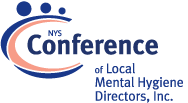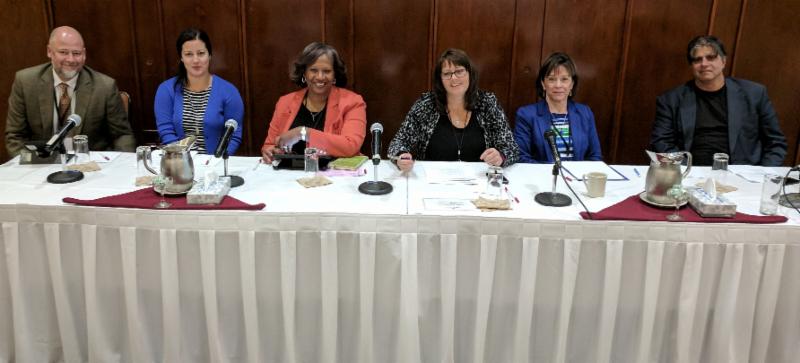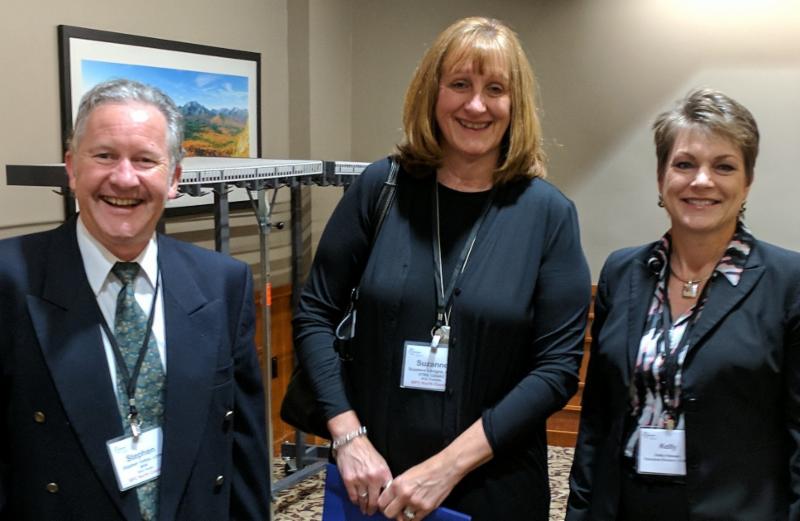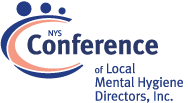
Advancing Public Policies for People with Mental Illness, Chemical Dependency or Developmental Disabilities
|
|
 |
|
|
 |
|
|
 |
|
Centene in a $3.75 billion deal for New York Medicaid leader Fidelis Care
Centene is making a big move into New York state, with a deal to acquire non-profit insurer Fidelis Care's plans for $3.75 billion.
The asset purchase will bring Centene more than 1.6 million new members in the state, spread across the Medicaid, Medicare Advantage and Obamacare exchange markets.
Fidelis Care is the leading New York Medicaid and children's health plan insurer, operating in all 62 of the state's counties. Centene already serves the California, Florida and Texas Medicaid and exchange markets. If approved, the Fidelis deal would boost Centene's national membership to nearly 14 million members, putting it in the nation's four largest states
.
The executives say the transaction is being structured as an asset purchase, rather than an outright acquisition, because of New York state regulations surrounding the sale of nonprofit firms. Read more
here.
|
|
 |
|
|
NYS OASAS Announces Upcoming Release of "Reversing the Stigma," A Documentary About Addiction and Recovery in New York State
The New York State Office of Alcoholism and Substance Abuse Services (OASAS) today announced the upcoming release of a new documentary about addiction and recovery and the stigmas that surround them. "Reversing the Stigma" highlights the work being done in New York State to combat addiction and reminds viewers that addiction is a chronic disease that is treatable. The film, narrated by acclaimed television journalist Laurie Dhue, profiles multiple people in various stages of recovery, who share their stories and experiences. "Reversing the Stigma" was produced by OASAS and the New York State Media Service Center.
The film will premiere throughout New York during the month of September, which is National Recovery Month. Read more
here.
|
|
 |
|
|
Results Of OPEN MINDS
National Innovation Survey:
51% Of Specialty Provider Organizations Using Peer Support Specialists In 2017
Headlining the report findings was the popularity of peer support specialists. Over half (51%) of survey respondents confirmed the use of peer support specialists in their specialist provider organization. The report also shows an increase of organizations currently 'planning' and 'evaluating' a variety of new innovative models in 2017. Read more
here.
|
|
 |
|
SAVE THE DATE:
MCTAC IN-PERSON TRAINING
Preparing Your Organization for the Transition to VBP
Are you a Medicaid behavioral health provider in New York State? Are you looking for ways to prepare your organization for many of the upcoming systems transformations related to Value Based Payment?
Save the Date: MCTAC is excited to partner with
Open Minds for an upcoming in-person training opportunity on November 13th in Albany to address strategies and actions. This event will feature a number of NYS behavioral health organizations who will share their experience creating partnerships.
This event will provide both national and NYS examples, lessons learned, and strategies of effective partnerships as well as concrete tips to ensure appropriate steps are being taken to prepare.
There will also be time for Q&A. This training will not be videotaped or recorded, but the slides will be made available on
ctacny.org following the event.
The event is free of charge and is targeted towards organizational and agency leadership.
When: November 13th, 9:30 AM -3:30 PM
Where: Albany Marriott, 189 Wolf Rd, Albany, NY 12205
Registration information coming soon!
|
|
 |
|
|
September 15, 2 - 3:30 pm, SAMHSA
September 19, 1 - 2 pm, Pathways RTC
Enable Access to Client-Level Data in PSYCKES
September 20, 10 - 11 am, OMH
September 28, 12 - 12:30 pm, PsychU
October 5, 3 - 4 pm, CHCS
October 12, 2 - 3:15 pm, Stepping Up
October 19, 2 - 3:15 pm, Stepping Up
November 7, 12 - 1 pm, PsychU
|
|
 |
|

|
Children & Families Committee Meeting
September 19: 11:30 am - 1 pm
GTM
OCTOBER 2017
Officers, Chairs & Regional Reps Call
October 4: 8 - 9 am
Developmental Disabilities Committee Meeting
October 5: 1 - 2:30 pm, GTM
Office Closed - Columbus Day
October 9
Children & Families Committee Meeting
October 17: 11:30 am - 1 pm,
GTM
Mental Hygiene Planning Committee Meeting
October 17: 1 - 3 pm,
GTM
Directors & Executive Committee Combined Meeting
October 18: 9:30 - 12:30 pm
GTM
OMH Agency Meeting
October 24: 9 am - 12 pm
44 Holland Ave., Albany
OASAS Agency Meeting
October 24: 1 - 4 pm
1450 Western Ave., Albany
Contact CLMHD for all Call In and Go To Meeting information, 518.462.9422
|
|
|
CLMHD's Fall 2017 Full Membership Meeting was held from September 11-12 at the Crowne Plaza in beautiful Lake Placid.
The mee
ting began on Monday morning with a presentation by Dr. Nina Aledort, Associate Commissioner Youth and Young Adult Services, NYS Office of Children & Family Services. Dr. Aledort spoke about how New York's new Raise the Age new law will impact the LGU and how DCSs can best prepare for the change.
Following this presentation, DCSs from Central NY gathered as a panel to discuss the concept and implementation of their region's 24/7 Regional Crisis Center for Addictions, a project proposed by the six Central New York DCSs, and partially funded by NYS OASAS.
The center, which is anticipated to open this fall, will serve residents of Cayuga, Cortland, Madison, Oneida, Onondaga, and Oswego Counties. During the afternoon, the CLMHD Business Meeting included a formal presentation to members of a new 2-year Strategic Plan for the Conference.
On Tuesday, we were pleased to have Monica Oss, Founder and CEO of OPEN MINDS, present "The Changing Health & Human Service Landscape - Issues & Opportunities." She offered insight on the national and state trends shaping mental health policy, and how LGUs can adapt to the new role of technology in the evolving service delivery system. Additionally, she identified the changing role of local government in the new mental health market landscape, helping to identify opportunities for collaboration and enhance sustainability.
Finally, the Conference would like to offer sincere congratulations to Steve Valley, who is retiring after seven years as DCS for Essex County. We appreciate all of your valuable time and input over the years, Steve, and wish you the best in your retirement!
Monica Oss, Founder of OPEN MINDS, takes a question from Susan Matt, LCSW, CASAC, Otsego.
DCSs from Central NY L-R: Mark Thayer, MS, Cortland; Teisha Cook, LCSW-R, Madison; Lisa Alford, MA, Onondaga; Nicole Kolmsee, Oswego; Robin O'Brien, Oneida; Ray Bizzari, MPA, Cayuga.
L-R: Steve Valley, LMSW, MSW, Essex; Suzanne Lavigne, MHA, CTRS, CASA, Franklin; Kelly Hansen, CLMHD Executive Director.
|
|
 |
|
Governor Cuomo Announces New Initiatives to Combat Addiction Across New York State
Governor Andrew M. Cuomo last week announced several new initiatives to deliver new addiction treatment, recovery and support services to residents suffering from substance use disorders in underserved communities throughout New York City and Long Island. The Governor also announced new statewide guidance and regulations that will limit patient brokering and reduce barriers to insurance coverage for addiction treatment. The announcements were made at the grand opening of a new $25.6 million substance use disorder treatment center on Wards Island that will provide services for women with children, female young adults, and adults 55 and older.
"New York is committed to the fight against addiction, and with these latest investments, we are taking necessary steps to ensure individuals and families in underserved communities are connected with the resources and support services they need," Governor Cuomo said. "These new regulations and expanded services are part of our continued efforts to support New Yorkers dealing with substance use disorders, as we work harder than ever to create a stronger, healthier New York for all."
Read more
here.
|
|
 |
|
Opioid Overdose Death Rates Shift In New York
A
new report from the New York State Department of Health (NYSDOH) shows that deaths from opioid overdose fell in most New York counties between 2015 and 2016. Expanded use of the overdose prevention drug naloxone was credited in part with the downward shift in numbers, reflecting
growing recognition of the medication's effectiveness in helping to lower opioid overdose deaths. However, the report did not reflect opioid-related death statistics from New York City, where overdose deaths continued to rise during the same time period.
According to the report, New York state experienced 1,238 opioid deaths between 2015 and 2016-a small but still significant decrease from previous statistics, which counted 1,520 deaths in 2014. Read more
here.
|
|
 |
|
How Many Emergency Department Visits are Really Avoidable?
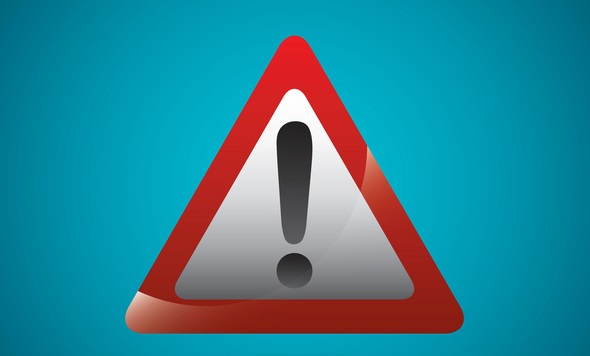
Reducing emergency department utilization is a top goal for many population health management and value-based care initiatives, but how many trips to the ED could actually be classified as "avoidable" in the first place?
According to
a new large-scale study from the International Journal for Quality in Health Care, the rate of unnecessary ED visits may be as low as 3.3 percent, calling into question the value of focusing too many resources on diverting patients into other forms of care.
The study notes that estimates of avoidable ED visits vary drastically from about 5 percent to 90 percent, leaving policymakers with little consensus to use as a basis for developing best practices.
Unnecessary ED utilization has often been viewed as an issue of socioeconomics: a way for patients without established primary care relationships - or the means to pay for them - to receive guaranteed care for any issue that arises. Read more
here.
|
|
 |
|
DOH Request for Public Comment: Children's Clinical Advisory Group Recommendations
The New York State Department of Health is pleased to announce the posting of the Children's Clinical Advisory Group Recommendations for public comment. The draft report is available on the DOH website
here.
Please submit comments and questions on the recommendations to
[email protected] by September 25, 2017.
|
|
 |
|
Why Medicaid Is The Platform Best Suited For Addressing Both Health Care And Social Needs

The debate about if and how to amend, repeal, or replace the Affordable Care Act has drawn attention to the central role that the Medicaid program plays in providing coverage and access to health care for millions of Americans. This central role positions Medicaid as an ideal platform on which to build an integrated system that simultaneously addresses health care and social needs.
Evidence has been building that social determinants of health have a bigger impact even than health care services on people's health, functioning, and quality of life. But the United States, while arguably developing some of the world's most powerful health care technologies, has been slower to systematically address social determinants of health. We spend more than any other country on health care, per capita, but achieve worse health outcomes, Betsy Bradley and Lauren Taylor document in their book The American Health Care Paradox. But when health care and social spending are examined together, the United States ranks 13 in total spending.
"Ignoring the economic and social circumstances that result in poor health makes treating the resulting health problems much more expensive," one review of that book summarized. Bradley and Taylor have gone on to argue that a shift towards social services could improve health outcomes and reduce costs for the system overall. Read more
here.
|
|
 |
|
School-Based Health Clinics: Critical Access Points For Confronting The Addiction Epidemic

It is undoubtedly a critical time in this country to address the complexities of how to effectively prevent, treat, and help people recover from substance use disorders. As many parts of the country struggle to reduce the impact of the current opioid epidemic and help people rebuild their lives, others are contending with the new reality of cannabis legalization and the possible implications for youth.
Meanwhile, others are calling attention to rising rates of alcohol use, high-risk drinking, and alcohol use disorders, particularly among women, older adults, racial/ethnic minorities, and the socioeconomically disadvantaged. These trends are occurring against the backdrop of progress in driving down all areas of youth illicit substance misuse except marijuana. One example is underage drinking, which is at the lowest rate ever recorded in the annual national study of students that is funded by the National Institute on Drug Abuse.
This is the time to double down on prevention investments. We know that 90 percent of people who develop a substance use disorder started with use during the adolescent years, and the earlier they start, the more likely it is that they will develop a problem. Fortunately, progress has occurred over the past thirty years in developing and implementing evidence-based prevention approaches. Read more
here.
|
|
|




